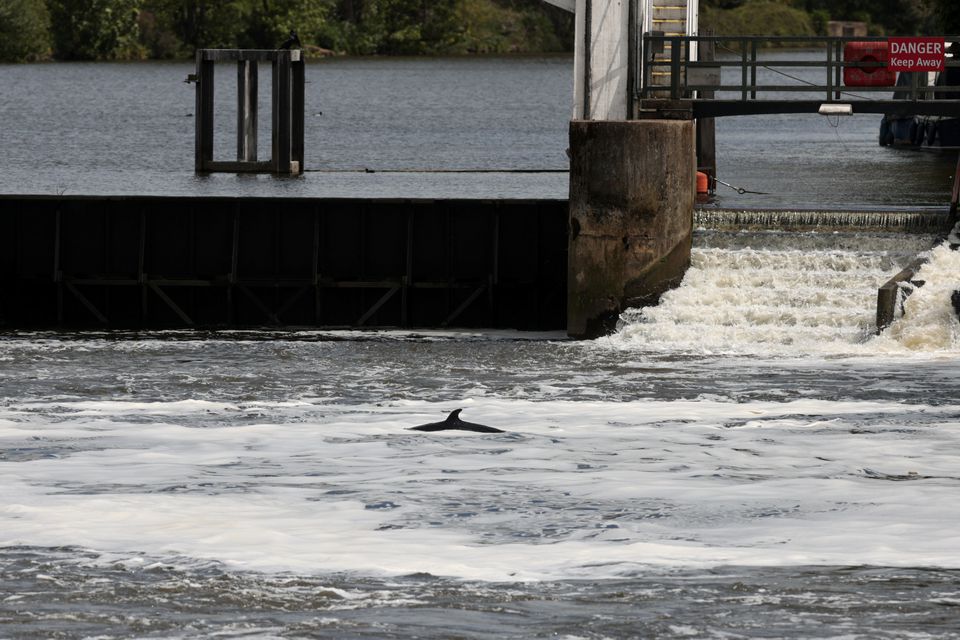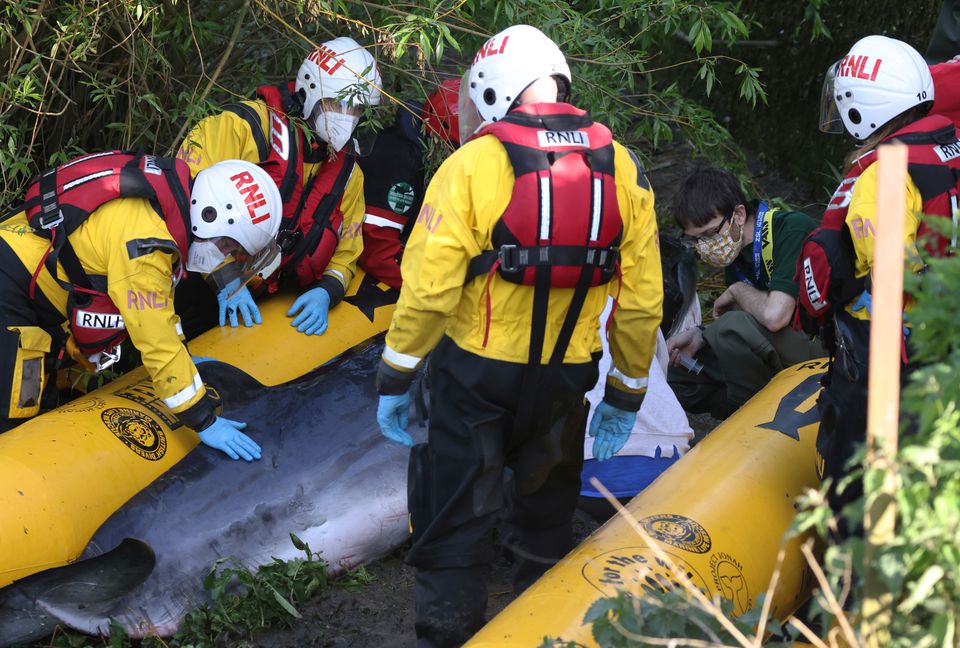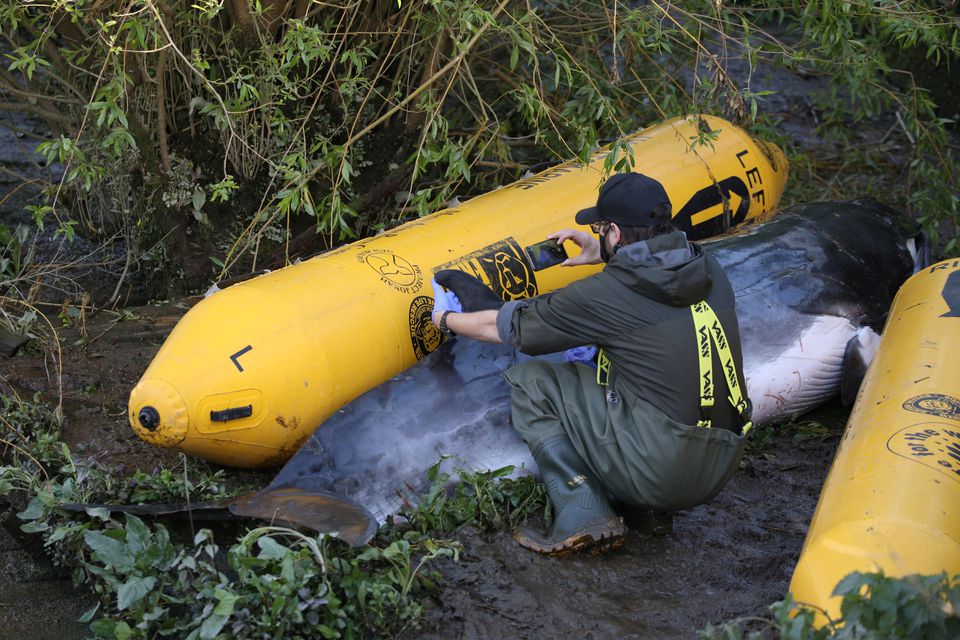Minke whale calf put down after getting stranded in London


An injured minke whale calf which became stranded in London’s River Thames was put down on Monday (May 10) after its condition deteriorated and hopes for its survival faded, hundreds of miles from its home.

The whale had been spotted by a Reuters photographer swimming upstream in the Thames after rescuers had refloated it to save its life, but it became stuck again.
Despite the efforts of rescuers from the Port of London Authority, Royal National Lifeboat Institute (RNLI), British Divers Marine Life Rescue, London Fire Brigade and the police, the whale was put down.

"They're going to put the whale to sleep. It's suffering quite badly, it has been for about the last 45 minutes," said Julia Cable, National Co-ordinator at British Divers Marine Life Rescue, adding the whale would be given an overdose of anaesthetic and wouldn't feel anything except the needle.
"We're just trying to ease any suffering."

The RNLI later confirmed the whale had been put down.
Fears for the whale grew after the injured calf headed in the wrong direction - away from the sea - and it faced a struggle for survival in the Thames, where nutrition is much more meagre than it its natural habitat in the north Atlantic.
[[nid:510392]]
Cable said the size of the whale, estimated at around 4.5 metres, suggested that it was still maternally dependent, or at least socially dependent, so "we cannot put it back out."
"It's nutritionally in a poor state. Either it's been separated from its mum too early, or something's happened ... it's run out of energy," she said.
"It won't have been feeding well in the Thames ... It will be dehydrated, it's starved."
The stranded whale was first spotted on Sunday night at Richmond Lock. Rescuers worked for hours to refloat it and then towed it a mile downstream.

"This animal comes from the northern North Sea - so it is hundreds of miles from where it should be. The whale is a hundred miles from the opening to the North Sea in the Thames Estuary," said Martin Garside, a spokesman from the Port of London Authority.
"There is no obvious sign of his mother."
[[nid:502781]]
The common minke whale is the smallest of all baleen whales, reaching eight to nine metres (26 - 30 feet) long. The whales prefer cooler temperatures and enjoy a varied diet of krill and schooling fish, according to the Whale and Dolphin Conservation group.
They do not usually appear in the Thames and it was not clear why the calf was so far from its normal feeding grounds.
"This whale could have become lost whilst following prey, or could be ill or injured," Danny Groves of Whale and Dolphin Conservation told Reuters.
“Equally, many whales and dolphins get into difficulty because they may have been struck by a vessel at sea, injured in fishing nets, driven off course by loud underwater noise from seismic surveys for oil or gas, or loud underwater sonar from military exercises.”